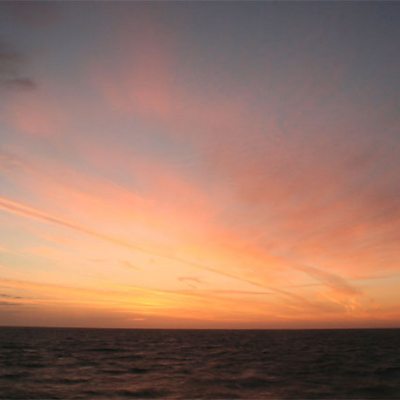Episode details

Available for over a year
As the philosopher Hans Blumberg pointed out, the perils of the sea have been long employed by writers as a way of describing the struggles of human existence. We mostly live our lives and build our institutions on dry land. But we often reach for the sea when talking existentially about the human condition. But the tragedy that has taken place in the Mediterranean is not a metaphor. Hundreds of people, crammed together, fleeing the horrors of warfare and poverty, seeking a new life in Europe, only to experience the unimaginable terror of a sinking boat far from land and safety. And yet it is to this same sea that many of us will be flying off to later in the year, lying on the beach, experiencing the soothing sound of waves lapping at the shore. What an uncomfortable and disconcerting contrast. And yet, so many of the ways people talk about religion assume this perspective of the land and not that of the sea. For example, many presume that the first and most properly basic question of all theology is the question of God’s existence. But, to me, this feels too much like a dry land sort of question, a question asked from the perspective of safety and calm. Rather “we are embarked” is what Pascal says when talking about his famous wager of faith. Here, faith is prompted by loss and abandonment, when the security of fixed references have been erased. And here, in the midst of this turbulent sea, vulnerable to chaos and disaster, the first and most pressing question is more like this: “How are we saved?” This is not a tutorial room question where we seek to establish grounds and foundations – interestingly, all land based metaphors. No - salvation is a cry for help, a desperate cry, an often incoherent despairing cry of those who feel all at sea with nothing solid beneath their feet. This is the first utterance of theology - screaming “help me” at the sky. Of course, there are those who insist this cry is foolish and unanswered, that the universe is as blindly chaotic the sea itself, just a play of tides and forces, upon which we are swept along or destroyed. Well, I hope not. For I believe that there is something legitimately summoned up in our cries for help that cannot be so readily dismissed by a logic that permanently operates on the security of solid ground. And defiantly I wont, perhaps cant, abandon the hope of salvation. Christianity originates in this question of salvation, searching for deliverance from tempest, chaos and disaster. Sometimes, for me, it is able vividly to imagine something that reaches out and pulls our heads above the waters. Othertimes it feels like a place with few answers, an experience of helpless frustration at the horrendous chaos of things. But at all times it’s the place from which we join in the song: “Oh hear us when we cry to thee for those in peril on the sea.”
Programme Website